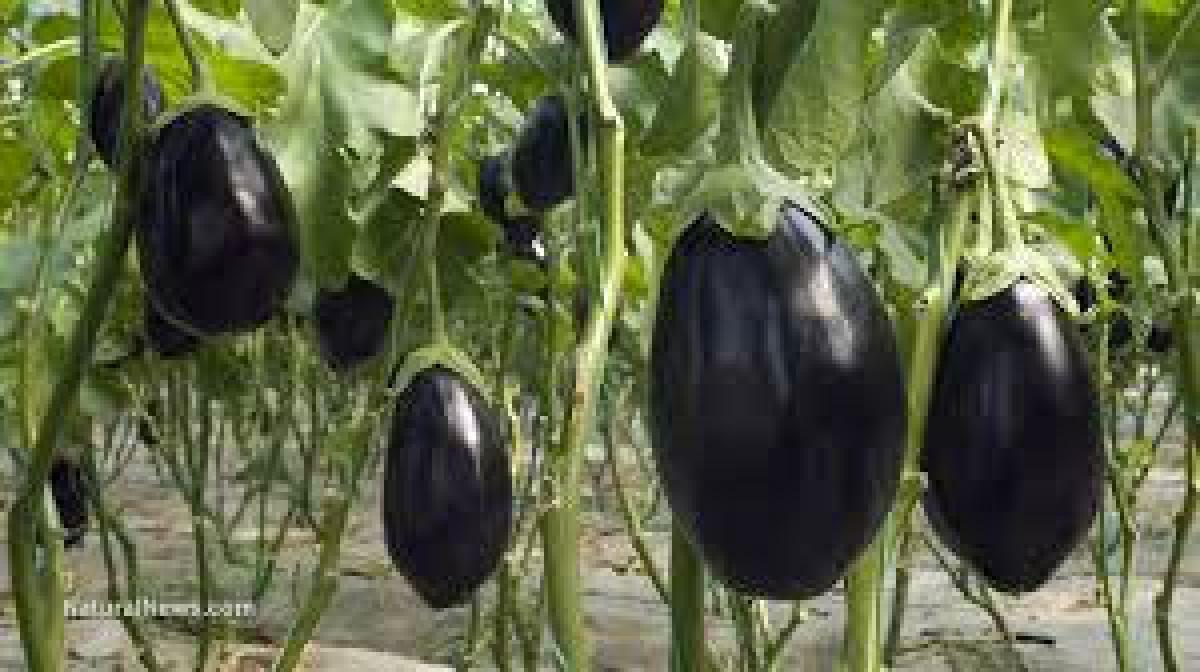Live
- Manglishines bright with ‘Ustaad Bismillah Khan YuvaPuraskar’
- Time to make Indian GI-tagged products advance from ‘Gaon Se Global’: Minister
- PM Vishwakarma Yojana empowers women in J&K's Poonch to pursue self-employment
- ‘Kannappa’ release date announced at Shri Mahakaleshwar Temple in Ujjain
- PM Matsya Sampada Yojana opens doors of employment in Bihar’s Nalanda
- Japan's Saitama reports first bird flu outbreak this season
- ‘Srikakulam Sherlock Holmes’ to hit screens this Christmas
- ‘Mr Manikyam’ FL unveiled; promises a tale of human values
- ‘M4M’ Hindi trailer gets a grand launchat Goa IFFI
- ESA’s Proba-3 Mission Reaches Milestone with Successful Fueling, Set for December 2024 Launch
Just In

The manner in which the Centre is going about allowing genetically modified (GM) food crops is causing serious concern. Five years after the UPA bowed to public pressure and imposed an indefinite moratorium on the commercial cropping of Bt Brinjal, the NDA government is hastening the advent of GM food crops.
 The manner in which the Centre is going about allowing genetically modified (GM) food crops is causing serious concern. Five years after the UPA bowed to public pressure and imposed an indefinite moratorium on the commercial cropping of Bt Brinjal, the NDA government is hastening the advent of GM food crops.
The manner in which the Centre is going about allowing genetically modified (GM) food crops is causing serious concern. Five years after the UPA bowed to public pressure and imposed an indefinite moratorium on the commercial cropping of Bt Brinjal, the NDA government is hastening the advent of GM food crops.
An application for approval for commercialisation of GM Mustard has been moved with the apex regulatory body GEAC (Genetic Engineering Approval Committee) in the Ministry of Environment, Forests & Climate Change. Without putting in place any mechanism for stringent tests, GM Mustard developed by Delhi University called Dhara Mustard Hybrid 11 (DMH11) is being considered for approval.
Mustard has a significant use in Indian cuisine and unless fears of potentially adverse consequences to the environment, animals and human beings are addressed, it should not be introduced.
The GM crops are said to produce higher yields and great protection against diseases. But, farmers would have to procure seeds patented by companies for each crop as has been in the case of Bt Cotton.
Earlier, a Supreme Court order in 2008 called for putting bio-safety data in the public domain for scrutiny and the Technical Expert Committee of the Supreme Court in 2013 raised strong questions about the GEAC conclusions on safety of GM crops. Even WHO insists on countries going for GM field trials to assert for themselves direct health effects of GM crops such as toxicity, allergic reactions, stability of the inserted gene, nutritional effects; and any unintended effects on environment from gene insertion.
Terminator technology used in GM crops is also illegal as per India’s Protection of Plant Variety and Farmers Right Act, 2001. It is also banned by the UN Convention of Biodiversity. Barring US and a few countries, European Parliament, Russia, China and dozens of nations have banned GMO.
GM proponents cite hunger deaths, low crop yields, agri crisis etc in India as reasons enough for allowing GM crops. The cost effective agro-ecological approaches, better agronomic practices including production-enhancing techniques should have been exhausted before permitting GM varieties.
GM proponents would not talk about dramatic rise in the use of insecticides and pesticides in the US in recent years despite GM crops, or why Bt Cotton is not so successful in rainfed areas as in irrigated areas in India. In contrast, those practising organic farming have neither crop yield or demand concerns or pest fears.
Bio-safety and bio-diversity should not be compromised in any manner. Hence it is necessary that stringent tests are resorted to and an independent body should make an assessment. All the information regarding the safety tests of the GM Mustard must be put in the public domain without which no approval should be granted. There is a need to revisit and review the entire experience of Bt Cotton before going into introduction of any other crop, especially genetically modified food crops. India-specific soil conditions, cropping patterns, agronomic conditions, nature of land holdings, etc., need to be considered while developing sustainable biotechnology solutions. No biological colonialism, please!

© 2024 Hyderabad Media House Limited/The Hans India. All rights reserved. Powered by hocalwire.com







